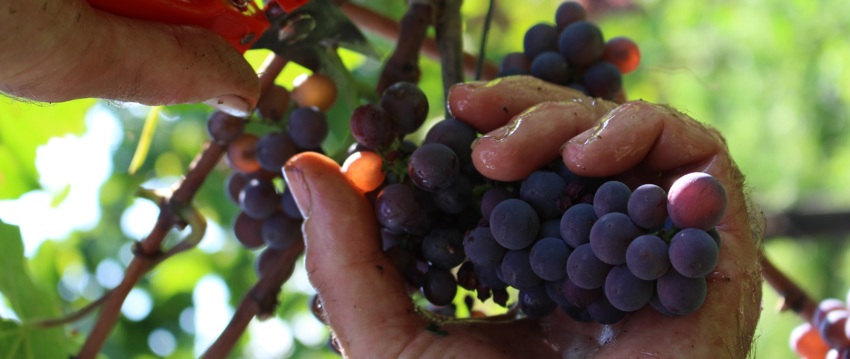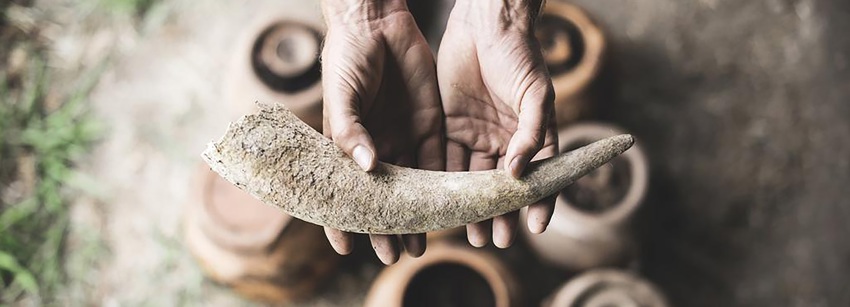Mindful wine: Sustainability and wellness
There's no question about it. 'Green' wines are on the up, with consumers showing an ever-increasing interest in the sustainability, provenance, and potential health benefits of what they choose to drink.
The industry may still be under the pressures of Brexit and COVID, but consumer trends indicate that there are significant areas for growth, and many of them lie in the realms of sustainable wine. Although mindfulness around food and wine production has been steadily growing since the 1990s, now more than ever, consumers are associating sustainable products with quality 'from the ground up', as well as benefits towards the planet and their own health.

An increasing number of winemakers are opting for sustainable practices in their vineyards (La Dama)
Changing climates
Today, it's impossible to ignore climate change. Between experiencing Extinction Rebellion's marches to watching Greta Thunberg's impassioned speeches, many have had environmental concerns pushed to the forefront of their minds - to the extent that in the UK, 61% of consumers now state they will go out of their way to buy products in environmentally friendly packaging.
Overall efforts towards sustainability in viticulture are hard to measure - certification is expensive, and many operate organically or biodynamically without a legal stamp of approval. But official statistics suggest that conversions are on the up. The number of vineyards filing for organic certification is higher than ever before, and operating sustainably has become a key priority in the wine supply chain. Certifiable measures are looking likely to become a major competitive advantage in the international arena in coming years.

Organic products, produced without chemicals, are becoming increasingly attractive to consumers (La Dama)
The organics craze
It's certainly organic products that are spearheading sustainable wine's popularity - both in this country, and on a global scale. Throughout 2020, organic products' growth was almost double that of non-organic, and is on target to reach £2.9b by the end of 2021. A huge proportion of this is driven by organic beers, wines and spirits, which grew ahead of other organic sales last year in all supermarkets - up 32.9%, compared to 12.5% for other products*.
So why are organics so popular? Easy to define and understand, their link to sustainable living is clear-cut for customers looking to 'go green'. And, with premium supermarkets like Waitrose teaming up with royalty to champion organic produce, and retailers like Whole Foods, Farmdrop, and Holland & Barrett positioning organics as not only premium but healthy, they're tapping into two key trends. Firstly, premiumisation: the 'treat yourself' mentality has been on the rise for a while, but skyrocketed in the past six months especially. And secondly, 'wellness' - something that has been exacerbated by 16 months of general concern around human health, and looking after oneself. Products unaffected by pesticides, herbicides or other foreign chemicals are now marketed as the most natural, 'healthy' ones on the market.

Biodynamics' niche philosophies may be confusing for some consumers (Millton Vineyards)
The future of biodynamics
So, organics are set to succeed, but what about other channels of sustainable winemaking? In wine circles, the terms organic and biodynamic are often mentioned in the same sentence - but with its more holistic approach and 'niche within a niche' positioning, biodynamic wine hasn't yet reached the heights of organics' success. A 2017 survey showed that 76% of millennials - a key demographic for sustainable wine - had never even heard of biodynamics, and certified wineries remain a tiny fraction on the world stage.
But, with premiumisation, attention to quality, and a general tendency towards sustainable products on the rise, biodynamic wines may just be at the foot of a climb to success. Cow horns and lunar cycles aside, the philosophies behind biodynamics are around working with nature - and the hands-on approach required for the winemaking process is exactly in line with the sustainable efforts that consumers want to see. And, with experimentation on the rise and consumers continuing to search for the next 'big' thing, biodynamic wines are certain to become even more popular in years to come.
* Sources: POURTRAITS research 2020, Soil Association Certification's Organic Market Report 2021




